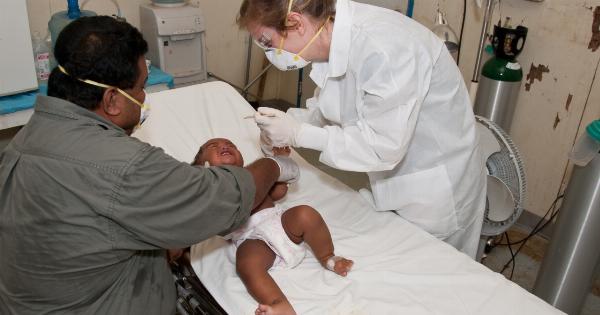It is a well-known fact that young children are more susceptible to catching viruses compared to adults.
However, did you know that older siblings could be a major contributor to the spread of viruses among younger children? Research has shown that older siblings tend to have a higher number of infections, and they often pass these to their younger siblings. In this article, we will discuss the role of older siblings in spreading viruses to younger children, and what we can do to prevent it from happening.
Why are younger children more vulnerable to viruses?
Young children are more vulnerable to viruses because their immune systems are not yet fully developed, which means they are more susceptible to infections.
In addition, young children tend to be in close contact with others, especially within a family unit, which increases the likelihood of them catching and spreading viruses. Young children also tend to touch their faces and mouths more often, which can lead to the transmission of viruses from their hands to their mouth and nose.
How do older siblings contribute to the spread of viruses to younger children?
Older siblings play a significant role in the spread of viruses to younger siblings. This is because older siblings are often the first to catch viruses, and their younger siblings tend to be in close contact with them.
Older siblings also tend to have more social interactions outside of the household, which increases their exposure to viruses. This exposure can lead to them bringing viruses home and passing them onto their younger siblings.
Furthermore, older siblings tend to have a higher number of infections compared to their younger siblings. This is because their immune systems have been exposed to a wider range of viruses, which means they are less susceptible to some infections.
However, this also means that older siblings have the potential to be carriers of viruses, even if they do not show any symptoms.
Finally, younger siblings tend to be more vulnerable to infections due to their weaker immune systems, which means they are more likely to catch viruses from their older siblings.
The close contact and interactions between older and younger siblings, along with their age differences, create a perfect environment for the spread of viruses.
What can we do to prevent the spread of viruses from older siblings to younger children?
Preventing the spread of viruses from older siblings to younger children requires a multi-pronged approach that involves both older and younger siblings, as well as parents. Here are some ways to prevent the spread of viruses:.
1. Encourage good hygiene practices for all family members:
Good hygiene practices can go a long way in preventing the spread of viruses.
All family members should regularly wash their hands with soap and water for at least 20 seconds, especially after they have been in public places or come into contact with someone who is sick. They should also avoid touching their faces and mouths.
2. Keep sick family members isolated:
If anyone in the family is feeling unwell or showing symptoms of illness, they should be isolated from the rest of the family.
This will help prevent the spread of viruses to other family members, especially younger children who are more vulnerable to infections.
3. Use separate towels and utensils:
Sharing towels and utensils can be a significant contributor to the spread of viruses. Each family member should have their own towel and set of utensils to avoid cross-contamination.
4. Encourage social distancing:
During periods of illness outbreaks, such as during the flu season, parents should encourage social distancing among family members. This might involve children not sharing toys or other items, and family members avoiding close contact with each other.
5. Get vaccinated:
Vaccination is another highly effective way to prevent the spread of viruses. Parents should ensure that all family members are up-to-date with their vaccinations, especially against highly contagious viruses such as measles and influenza.
Conclusion:
Older siblings play a significant role in the spread of viruses to younger siblings. However, with good hygiene practices and proper precautions, outbreaks of viruses can be minimized.
Parents can take the lead in educating their families and encouraging good health practices to reduce the spread of viruses. As we learn more about the risks associated with viruses, parents can help keep their families safe and healthy by adopting the measures discussed in this article.



























